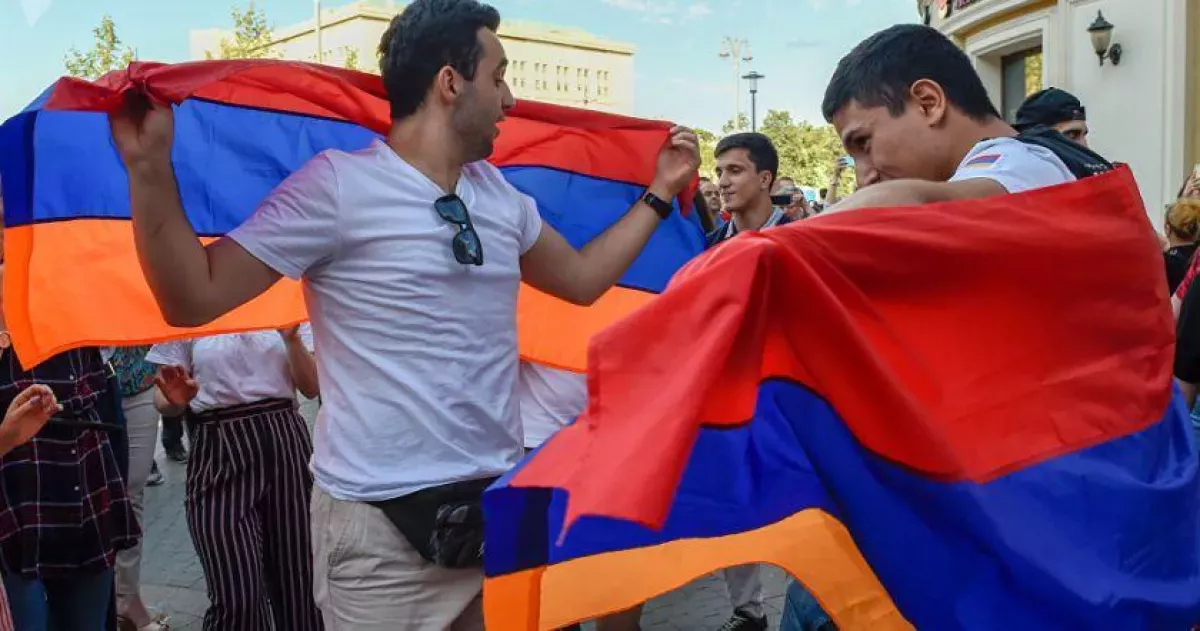Armenia is not “everywhere Armenians have lived” Dispelling misconceptions
A mental disorder is marked by clinically significant disturbances in cognitive function, emotional regulation, or behavior, often accompanied by distress or severe functional impairments. Sometimes, these issues can extend beyond the individual to affect entire groups or even a "coordinating council." Let me clarify what this "coordinating council" with notable symptoms of mental disorder is all about.
Recently, the Coordinating Council of the alternative socio-political movement “Together” in Armenia issued a statement that many might find quite absurd. They called for the inclusion of a “safe return for 1.2 million Armenians, ‘forcibly’ displaced from the Azerbaijan SSR more than 30 years ago,” in the country’s diplomatic agenda. This demand seems to belong more to a realm of fantasy, akin to saying, “The science fiction department is on another floor.”
Despite the outlandish nature of this request, it didn’t prompt any intervention from mental health professionals. Instead, the Coordinating Council decided to escalate their demands, asserting: “Therefore, we, representatives of approximately 1.2 million Armenians ‘expelled’ from Azerbaijan, demand that the issue of our safe return and the right to live in today’s Azerbaijan be included in the international negotiation agenda. Genuine peace in the region cannot be established under conditions of ‘violations’ of the legitimate rights of the Armenian people.”
There are certain and reasonable objections to this. In fact, genuine, lasting, and even indestructible peace in the region can indeed be established, and the so-called "violation of the legitimate rights of the Armenian people" has nothing to do with it. Real and enduring peace would be achieved under the following conditions: amending the Armenian Constitution, significantly and quantitatively reducing its armed forces, requesting the dissolution of the OSCE Minsk Group due to its obsolescence and ineffectiveness, and removing the EU mission from the Azerbaijan-Armenia border.
There are substantial reasons to believe that the mission's functions are of an intelligence-gathering nature. This creates an opportunity to potentially pit regional states, who are also not pleased with the presence of this mission in the South Caucasus, against each other. Russia and Iran, for example, have a full "consensus" on this issue, as noted by the late Mikhail Gorbachev. What could be more advantageous than seeing regional and global powers clash within Armenia? Perhaps only the division of Armenia into occupation zones or spheres of influence.
This standoff, although small in scale, could escalate into a "hot phase." In such a scenario, the key for us is to remain neutral, observing the developments calmly. The benefits will come in due course. There’s no need for disapproval—this is the way of the victor, who sets the terms rather than being judged.
No one seems to have noticed that the slogan “Armenia is everywhere Armenians live or have lived” has led to a completely opposite result: where Armenians no longer live, they are unlikely to return. In fact, in some places where Armenians still reside, they are increasingly disliked by the local population, and this sentiment is growing stronger day by day. For instance, this is evident in the Krasnodar Krai.

Moreover, the future government of Western Azerbaijan in exile should not only focus on the return of Azerbaijanis expelled in 1987. It must also pay particular attention to the relocation of Azerbaijani populations from the Armenian SSR between 1947 and 1950. To put it plainly, this was a straightforward deportation carried out under Soviet Council of Ministers Resolution No. 4083, dated December 23, 1947. This cannot be forgotten, as it is a significant argument in the quest for justice. Justice, international law, as well as common sense and demographics, all point to the fact that Azerbaijanis should return to Zangezur.
We’ve become accustomed to the "double standards" of the international community, or rather, those who have appropriated that name for themselves. This doesn’t mean we intend to ignore it—in fact, quite the opposite. We will seize every opportunity and use any platform to highlight both the double standards and the discrepancies between their proclaimed values and their actual behavior. The so-called "international community" and its affiliated organizations have yet to provide a political assessment of either the expulsion of Azerbaijanis from Armenia or Armenia's occupation actions against Azerbaijan and its people.
Furthermore, regarding this "community": if we choose not to admit certain individuals to Azerbaijan, such as Mr. Schwabe, they simply won’t be granted entry. They may continue to voice their objections on social media platforms like X, demanding that there be no entry bans, but such outrage or even hysteria will not secure an electronic visa. Our policies are strict, and we expect everyone to comply.
Finally, I’d like to share a quote from a recent speech by the Prime Minister of Armenia: “I urge the Armenian people to move beyond the arbitration decision of Woodrow Wilson and start seeing the world as it is. We are either the guarantors of our own security, or there is no guarantor. For all those we wish to call guarantors of security, we are merely a bargaining chip.”
It seems that Pashinyan is one of the few in Armenia who understands that the worst has already happened. The fate of Armenia is being discussed without its participation. Once an agreement is reached, Armenia will be presented with a fait accompli because the negotiations now revolve around the stakes of the negotiators. The key players in this complex negotiation are the US, EU, Türkiye, Iran, Russia, and Azerbaijan—a rather intriguing mix. Pashinyan recognizes this and is doing his best to avoid worsening Armenia's already dire situation, as there’s always the potential for things to get even worse.








